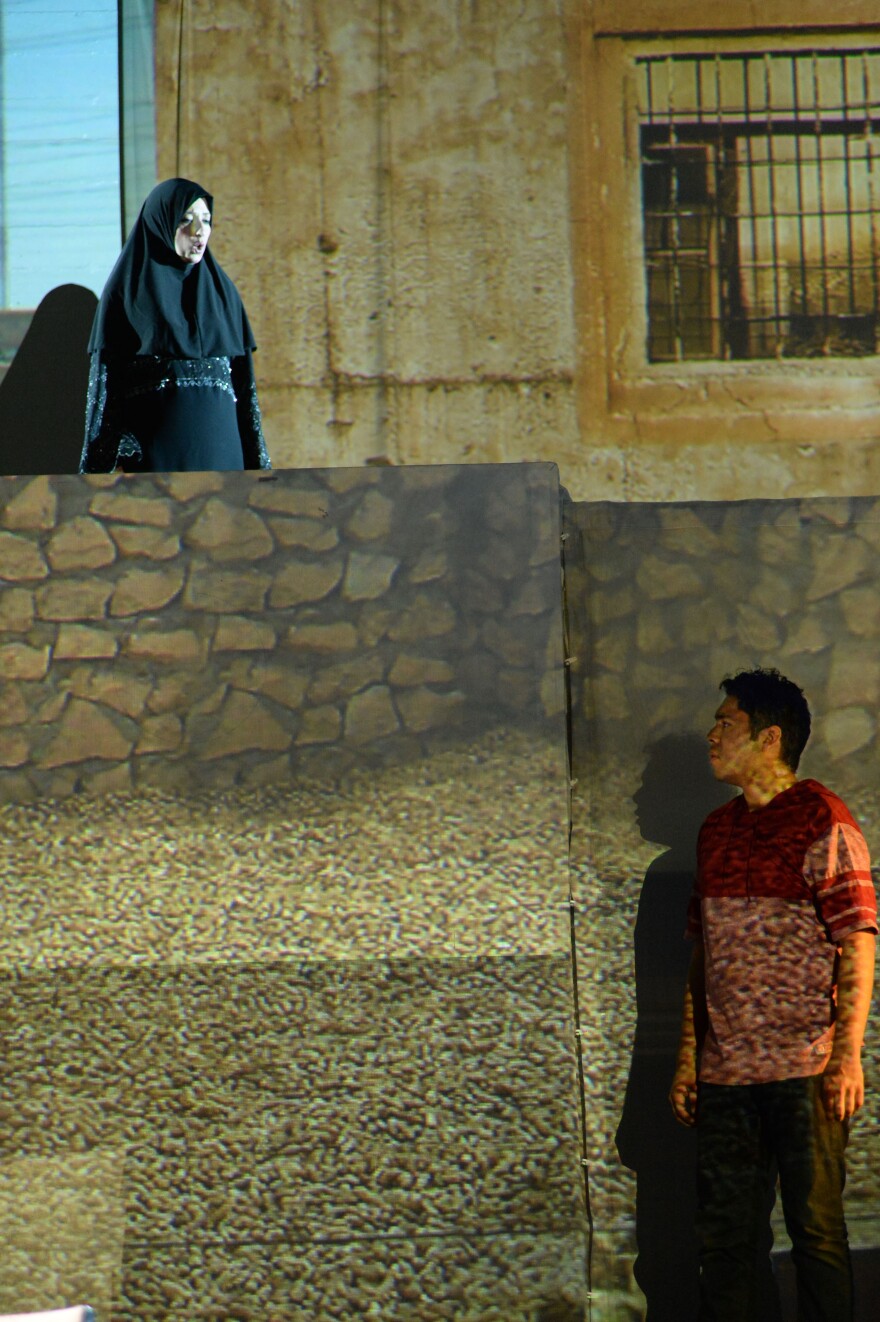One of the most intense episodes of the U.S.-Iraq conflict is the subject of a new opera premiering in Long Beach, California.
"Fallujah" takes its name and its premise from the Iraqi city where over a hundred Marines and thousands of Iraqis lost their lives in two military campaigns in 2004. It was the worst house-to-house fight for the Marine Corps since Hue City in Vietnam, and it left its mark on those who lived through it.
Christian Ellis, who fought in Fallujah as a machine gunner, collaborated with playwright Heather Raffo, who wrote the libretto for Fallujah. Tobin Stokes wrote the music.
The opera, based partially on Ellis' experiences, delves inside the brain of a young Marine, Philip, who's hospitalized in a Veterans Affairs facility after his third suicide attempt.
In a day-dream like state, he's visited by thoughts and memories of people from the battlefield.

Raffo said moviegoers have plenty of experience with the sounds of war — guns, bombs, shouts — but the noise inside a war survivor's head is something best replicated on the stage.
"It’s relentless. You’re supposed to be never let off the hook," she said.
For Raffo, it was important to tell the stories of the Iraqi civilians caught between the U.S. military and the insurgents.
Heather Raffo's father was born in the northern Iraqi city of Mosul, and in recent decades her family members have largely fled Iraq and emigrated elsewhere. Raffo says she only has four cousins remaining in Iraq. As Chaldean Christians, they sought safety in Baghdad because Mosul is occupied by the Islamic State.
"The tragedy I've seen in my own family is ceasing to be Iraqi anymore, the ceasing to identify with the country as a home," she said. "The country has changed so dramatically, rejected them, or crumbled."
The Iraqi story plays out through a teenage boy and his mother. Back in Fallujah, their lives collided with Philip’s in a split second of combat.
While the boy grapples with his wartime Iraqi identity, Philip struggles with his own as he returns home.
"War ultimately destroys you as a human," Ellis said. "If you are actively involved in trying to kill [the enemy], it’s ‘us versus them,’ you lose that, and you lose your identity."
An aspiring singer before he joined the Marines at age 19, Ellis began to write about his experiences after coming home from the war. His work came to Raffo's attention and "Fallujah" came soon after.
Ellis said there were lots of different reasons why insurgents wanted to fight his Marines. Some were ideological, but others fought only because they were forced to. Insurgent leaders kidnapped their families and forced the sons to fight.
Ellis says the Battle of Fallujah showed him the worst in humanity.
"It’s war in every way imaginable," he said. "The good and the bad.”
Once Marines like Ellis came home, he said, people didn't want to know what he'd done, and he didn't want to tell them.
"And that’s Fallujah."




